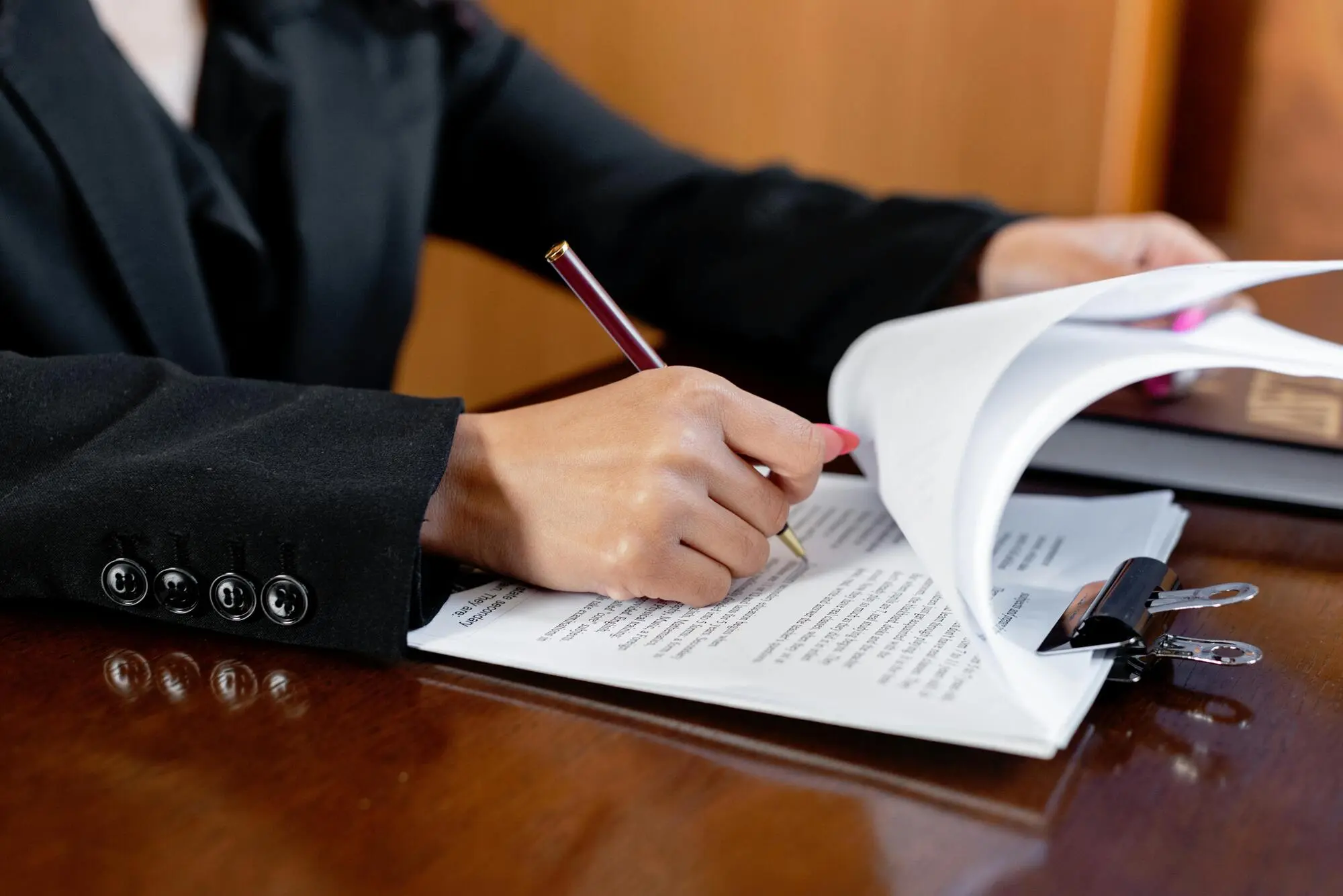Need Help Understanding Trust Protectors?
When you set up a trust, there are three primary actors or entities: the grantor/settlor (the person who sets up the trust), the trustee (the person who oversees the trust and ensures that it is maintained and its assets disbursed according to the will of the settlor), and the beneficiary (the party that benefits from the trust and its assets).
But when you approach a law firm to set up a trust, they might make you an offer that sounds too good to be true – adding a fourth entity that can provide even more protection to your trust instrument. That entity is the trust protector.
Not sure what a trust protector is or whether you really need one? Let's take a closer look.
Trust Protectors Explained
In the simplest terms possible, a trust protector is any third party or entity that is given special powers in relation to a trust. Those special powers can go above and beyond the powers of the trustee, even up to removing the trustee and installing a replacement if needed.
Let’s look at an example. Imagine that you set up an irrevocable trust for asset protection purposes. By its very nature, you can’t change the terms of the irrevocable trust; you are reliant on the trustee you appointed previously to carry out the duties of trust management and make sure the assets are distributed appropriately.
What happens if the trustee changes their mind about their duties? For instance, maybe the trustee decides not to distribute assets to your beneficiaries, such as your kids, because of their interpretation of the trust’s rules. In this case, are you out of luck?
A law firm setting up a trust might say that a trust protector is the perfect solution. If you appoint a trust protector, you can give that third party the power to remove the current trustee and install a replacement. Then, your trust can operate as intended.
Bottom line: a trust protector is another layer of management and administration over your trust instrument. Think of the trust protector as a (potentially) higher authority than the trustee. If this sounds redundant, that’s because it is – it’s essentially appointing a “secondary” trustee over the primary trustee, with all the confusion and potential cause for concern that implies.
What Can a Trust Protector Do?
Depending on what you dictate in your trust documents, a trust protector can have many different powers or responsibilities, including but not limited to:
- The power to remove and/or replace the trustee. If the trustee isn’t doing their job right—maybe they’re mishandling funds or making poor investments – the trust protector can step in, show them the door, and bring in someone more reliable.
- The power to modify the powers of the trustee. This flexibility allows the trust to adapt to unexpected events or the changing needs of those who benefit from it.
- The power to change a trust or terminate it depending on the trust type. Sometimes the initial reason for setting up the trust becomes irrelevant, or maybe a better, more tax-friendly option arises. In those cases, the trust protector can make the necessary adjustments or even close up shop.
- The power to clarify the language from when the trust was created. This helps prevent squabbles among the beneficiaries or expensive legal battles over what the person who created the trust (the settlor) truly wanted.
- The power to veto distributions to beneficiaries by the trustee. Think of it as an extra layer of security to make sure the money in the trust is being used the way it was intended to be.
Depending on the jurisdiction in which your trust is set up, your trust protector may require court approval for some of these actions, while in other jurisdictions, they may have effectively dictatorial control over the instrument.
Do You Really Need a Trust Protector?
The real question you're asking yourself as an entrepreneur or high-net-worth individual is whether you really need a trust protector. Sure, the law firm pitching the trust protector sounds convincing, and their sales pitch seems to include a lot of good reasons why a trust protector is a solid idea.
But if there are alarm bells ringing in your head, it’s for a good reason: you don’t need a trust protector under any circumstances.
Recall what we said a moment ago. When you install a trust protector over your trust, you essentially install a higher trustee who has additional powers and abilities.
In theory, a trust protector could be an excellent asset and manager over your trust, in the event that your appointed trustee doesn’t do their duties or there’s some other problem with their appointment.
But that’s the issue – you only need a trust protector if your trustee is chosen poorly. If you choose your trustee wisely, and you make sure that your trustee can’t be bullied by the courts or legally compelled to compromise your asset protection strategy, then there’s no need for a trust protector whatsoever.
The Problems with Trust Protectors
Beyond that, there are several problems with trust protectors that can make them not just neutral additions to your trust. In fact, trust protectors can actively harm your asset protection strategy.
Needless Complexity and Higher Fees
For starters, a trust protector adds needless complexity to your overall plan and the trust instrument. By implementing another administrator or manager to your trust, you make the entire setup that much more complicated for you, lawyers, and anyone else to understand.
That’s not the defense you may think it is. Adding another administrative layer to your trust won’t make it any more difficult for a judge or court to go after your assets. What it really does is pile on even more administrative fees for you to pay each year.
Now you see why law firms typically push trust protectors onto clients who want to create trusts for the first time. Those law firms want you to pay them more money so that one of their lawyers can operate as a trust protector and essentially get paid extra money for doing nothing more.
You can grasp the real depth of the scheme when you consider the fact that most lawyers will do their best to ensure you choose the right trustee for your trust.
If the lawyers do their job right, and you choose a trustworthy trustee, but then you also choose to appoint one of them as a trust protector, you literally pay them more money for no reason.
The lawyers have helped you install the right trustee for your trust, and the trustee carries out the administrative duties as needed. Meanwhile, one of the lawyers in the law firm operates as a trust protector but never has to exercise their powers since your trustee can be trusted!
Feel circular? That’s because it often is.
Legal Vulnerabilities
More importantly, a trust protector can introduce additional legal vulnerabilities to the mix. You can appoint yourself or someone you know closely, like your brother, your sister, your spouse, etc., as a trust protector.
If that happens, you technically have access to the trust through a legal “back door.” Imagine a scenario in which the judge approaches you for access to the assets in a trust after a lawsuit.
You tell them, “I’m not the trustee. I don’t have access to the trust assets, so I can’t be forced to give them to you.”
However, the judge looks at the trust paperwork and finds out you are the trust protector. They’ll turn right back around and say, “You still have access to the trust, so give us those assets or else.” The judge will be right – as the trust protector, you have the power to modify the powers of the trustee.
You read that right. By installing yourself as a trust protector, you don't add additional defenses to your protection strategy. All you do is make the entire setup weaker. A law firm might sell you this point as a positive, saying that you'll always have access to your assets or control over the assets when you need them.
But that's the entire point of smart asset protection – it removes direct control from you, so you can't be legally compelled to give up those assets in the event of litigation.
A Trust Protector Could Undo Your Asset Protection Strategy
Seen in this light, it should be clear that a trust protector can severely damage your asset protection strategy overall. It’s not a good idea, and you never need one.
While it’s true that there may be times when a trust protector could be a wise choice, those times are few and far between. They’re not as necessary as many law firms make them seen.
Choose the Right Trustee with Dominion
You can avoid the need for a trust protector entirely simply by choosing the right trustee for your trust in the first place.
If, after all, you appoint the perfect trustee who can be trusted with the responsibilities of asset management, you’ll never need to worry about them mishandling the trust or withholding your assets unnecessarily.
That sounds like a tall order, but it’s not when you work with Dominion. We have the experience, expertise, and holistic infrastructure needed to set you up with an asset protection plan that will serve you and your beneficiaries for life.
Our responsibilities include helping you determine who’s the right trustee for an asset protection trust. Whether you plan to store your assets offshore or domestically, you can rely on our advice to help you choose the perfect trustee and set up your trust for comprehensive protection.
Generally, when something works well, it’s simple. The same is true for asset protection trusts. Contact Dominion today to avoid the needless complexity of a trust protector and ensure your assets are guarded for years to come.




































.jpeg)


























